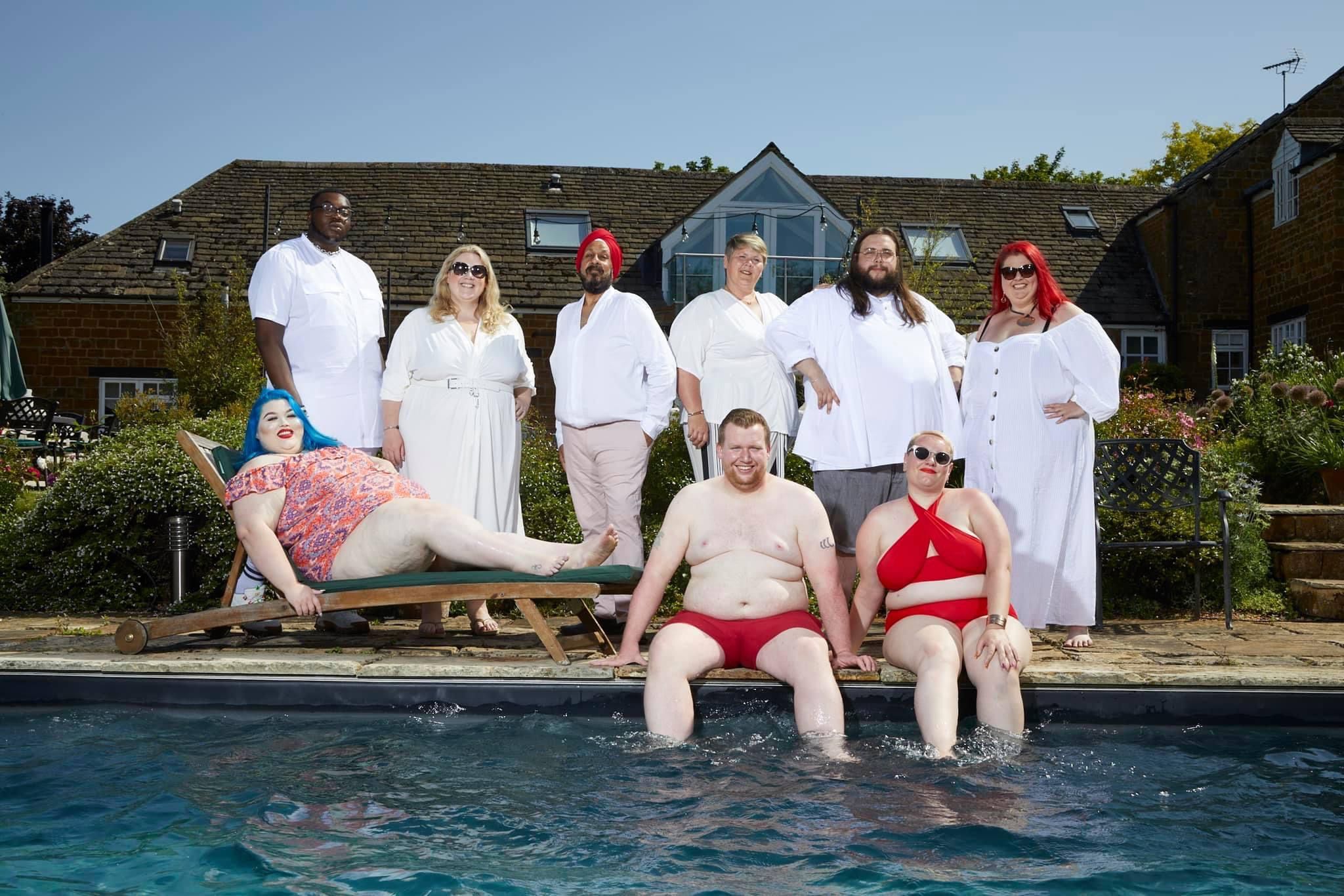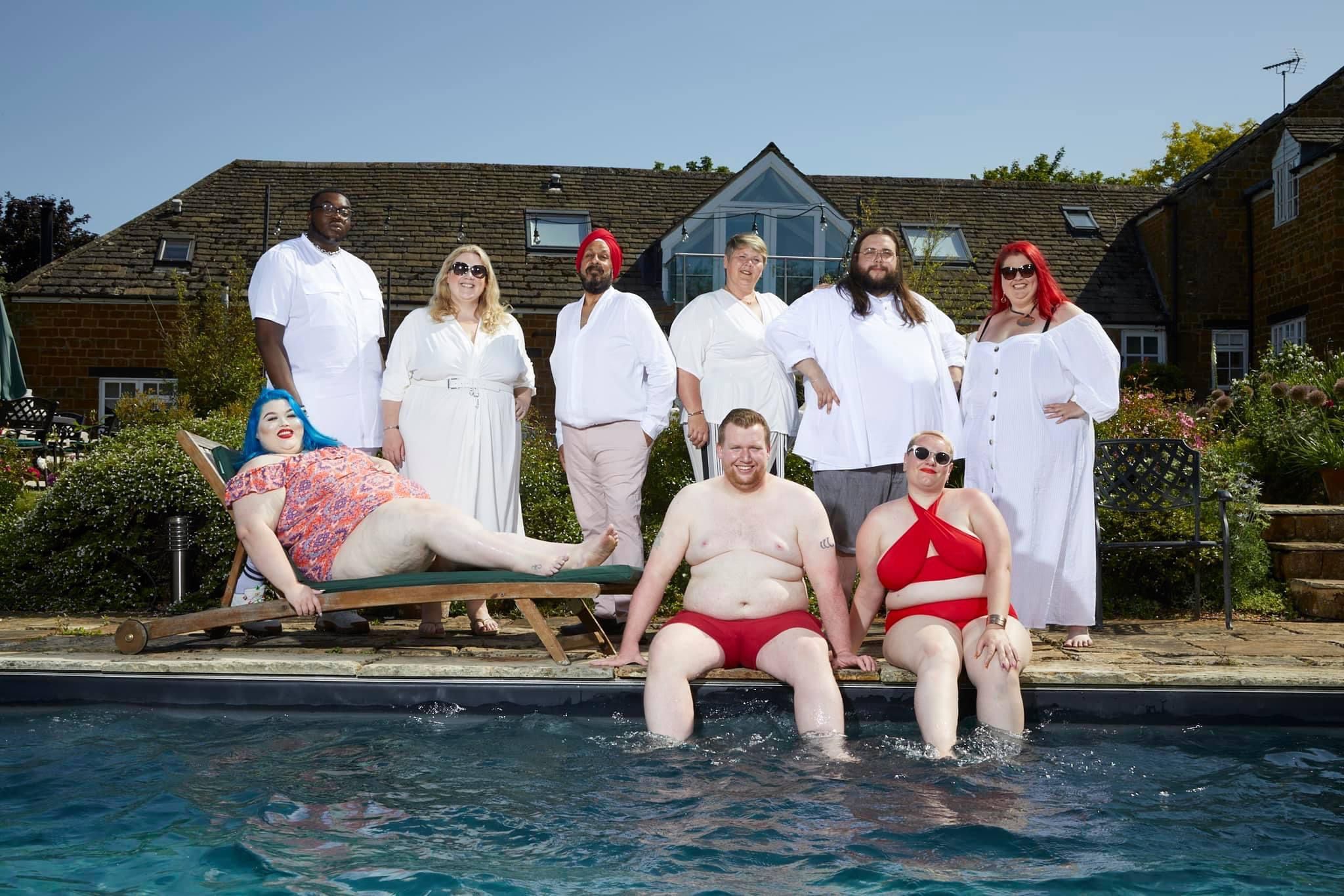
In October 2019, Sarah Le Brocq, Director of Obesity UK, featured in a 2-part BBC
documentary series, ‘Who Are You Calling Fat?’. The series documented nine people living with obesity over nine days, after they move into a house together to explore their shared and individual stories. In the style of a reality show, the series is an effort to peek behind the statistical curtain (according to the NHS, obesity affects 1 in every 4 people in the UK), and instead really look at the realities of life for bigger-bodied people in modern Britain.
Obesity is not a choice
For Sarah, participating on the documentary series was, first and foremost, about one of All About Obesity’s aims: to raise awareness and understanding of obesity. “My rationale for going in there was that I wanted to raise the profile around obesity, and get people to understand the complexities around obesity — rather than the method of ‘eat less, move more’. I wanted viewers to look at people living with obesity and understand that it’s not simple, people haven’t chosen to live that way, and that actually, we’re being too unfair and unkind … In 10-20 years’ time, we’ll look back on the way we’ve treated people living with obesity and be absolutely horrified,” Sarah said.
“My aspiration is that, in my lifetime, if I can just change one thing around weight stigma and the understanding people have, to get across the fact that obesity is not a choice i.e. it’s a lot more complicated than we think it is, and we need to be kinder to people living with obesity… Then I’ll be happy,” said Sarah.
People coping with obesity can live perfectly normal lives
When it comes to obesity, some people assume that it’s all about weight and possible health risks (as with media representation of people living with obesity). And while that may be a reality for some, it’s certainly not the reality for everyone — a common misconception Sarah was keen to tackle. “I wanted people to understand that obesity is not that simple, and that actually, there are lots of people from different walks of life all coping perfectly well living with obesity every day, and living normal lives. And it’s not something that means that we’re shut in our homes and can’t do everyday activities,” she said.
Not all people living with obesity think the same way
One of Sarah’s biggest learnings was just how different housemates’ thinking was. While some were unhappy with their weight and concerned about their health, others declared size a social construct — and the group often struggled to find consensus on larger-bodied issues. “Being in a house with such a diverse group of people, especially the body positive few … was quite interesting, because they have very different mindsets to the way I think about things. I understand the science of obesity because I have a science background, so for me, seeing the different facts and data — I believe them. Whereas the fat activists think that the science is bogus and have these very radicalised views on it, and I found that quite challenging,” said Sarah.
A key example was the group’s feelings about food and its impact on their weight; from Colin admitting he and chips were to blame for his diabetes, to fat activist Victoria’s dismissal of this as shaming, instead stating she was an ‘intuitive eater’. Differences were further compounded when the group discussed topics like losing weight versus embracing their bodies. These balanced opinions show no single viewpoint exists for those who live with obesity.

We need accessibility to services for those who want to lose weight
In 2014, NHS England and Public Health England published a report on obesity services, prompted by a lack of consistent access and commissioning for care. Sadly, not much has changed. “Currently, within the UK, the services are kind of a postcode lottery. They’re decreasing, not increasing, and it’s a real struggle. I want there to be equity across the country, so if you want to go through a Tier 3 or 4 weight management service as they are now, that you can get access to it regardless of where you live. And that’s not what’s happening,” Sarah said.
But it’s not just about service location — it’s also about broader funding of more integrated health programs, which can vary. “By reducing stigma overall and getting people to understand obesity and its complexities, I think that will change people’s mindsets and hopefully release funding. And change people’s perspectives on why someone should be put forward for weight management, rather than it be something that’s seen as negative as in, ‘Why should we waste our funds on someone that’s done this to themselves?’, that kind of attitude,” she said.
Obesity should be recognised as a disease
One of Sarah’s goals for ‘Who Are You Calling Fat?’ was to advocate for obesity as a disease. The position is backed by the UK’s Royal College of Physicians (RCP), the doctors calling for obesity to be recognised by the government and healthcare industry as a disease in January 2019, “warning that until this happens its prevalence is unlikely to be reduced”. Sarah and the RCP’s requests are similar: promote treatment and a wider narrative shift to empathy for patients, versus blame.
The outcome? “Healthcare professionals would have to take obesity seriously, and would have to treat obesity or offer treatment options. Currently, they’re not mandated for obesity. It’s a case of, they don’t have to treat it; they can mention it if they want, but they don’t have to,” Sarah says. Obesity’s recognition as a disease would also have knock-on effects for funding of care services — as well as hopefully reducing fatphobia and fat shaming, with testing’s ability to unlock invisible health conditions (e.g. genetic factors). “It just changes the perception and, in my eyes, it would remove some of the stigma that’s there, because … the body is not functioning properly, so therefore, we need to support someone to see how we can change how the body works, by giving them treatment. Just like we do with Type 2 diabetes and hypertension. Why do we look at obesity any differently?”